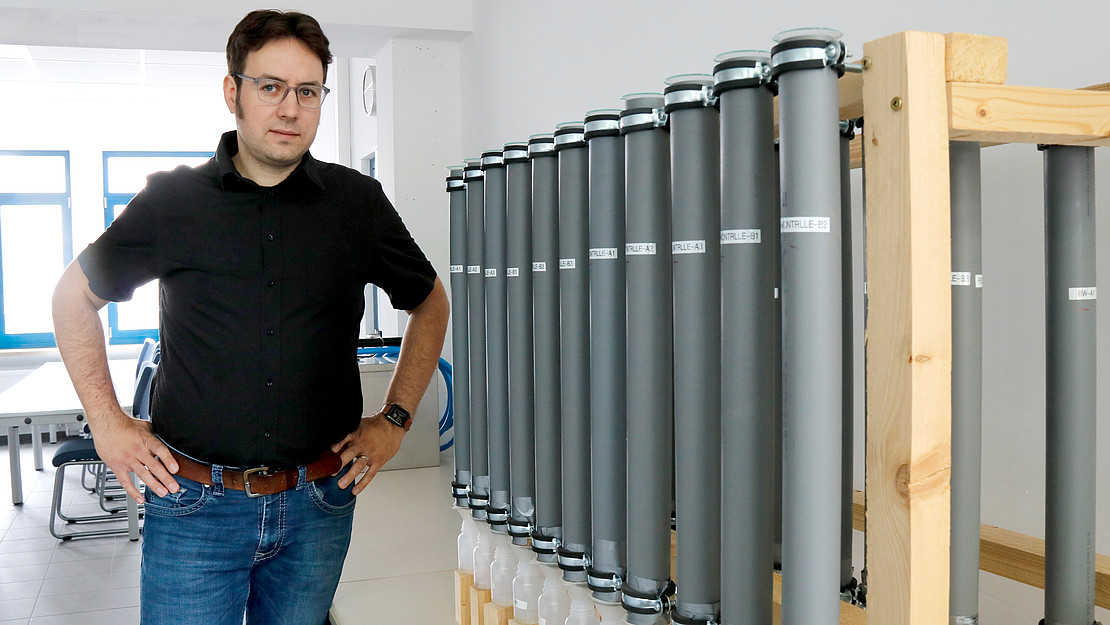This page contains automatically translated content.
Contaminated farmland soils: Kassel hydrologists investigate PFC behavior
 Image: University of Kassel.
Image: University of Kassel.Prof. Dr. Matthias Gaßmann and his team from the Department of Hydrology and Material Balance are developing a model for the behavior of PFCs in the soil. In the future, the model will be used to estimate the displacement of the substances in the soil (i.e. from higher layers to lower layers and into the groundwater) and in plants, and to make recommendations on this basis. In an experiment, the scientists compare polluted with unpolluted soil. The soil is placed in several pipes and poured with water, some of which contains PFCs and their precursors. This water is then collected and analyzed.
PFCs are per- and polyfluorinated chemicals that are suspected of being harmful to health. They enter the human body quickly and remain there for a very long time. The substances are used in many consumer goods, such as paper or textiles, because of their water-, oil- and dirt-repellent properties. In the past, PFCs also found their way onto agricultural land through soil improvement measures such as the application of sewage sludge or industrial sludge.
In the group of PFCs, one distinguishes a total of several thousand substances. "We are studying 17 substances, all of which behave differently in the environment. In this way, we cover as broad a range as possible of their behavior in the soil and in plants," explains head of department Prof. Dr. Gaßmann. "Our goal is to explore and model the behavior of the substances in soil," he adds. The question surrounding PFCs is: Do we need to do anything about them at all? That's related to the question of whether PFCs are degradable. Initial findings have already shown that PFCs themselves are not degradable, but may be irreversibly attached to soil particles.
PROSPeCT is a research project of the Department of Hydrology and Material Balance that started in December 2018 and will run for a total of three years. It is funded by the state of Baden-Württemberg in the BWPLUS program. To this end, the University of Kassel is collaborating with the Fraunhofer Institute for Molecular Biology and Applied Ecology, the Federal Institute for Risk Assessment and the Augustenberg Agricultural Technology Center.
Contact:
Prof. Dr. Matthias Gaßmann
University of Kassel
Department of Hydrology and Mass Balance
Tel.: +49 561 804-3462
E-mail: gassmann[at]uni-kassel[dot]de